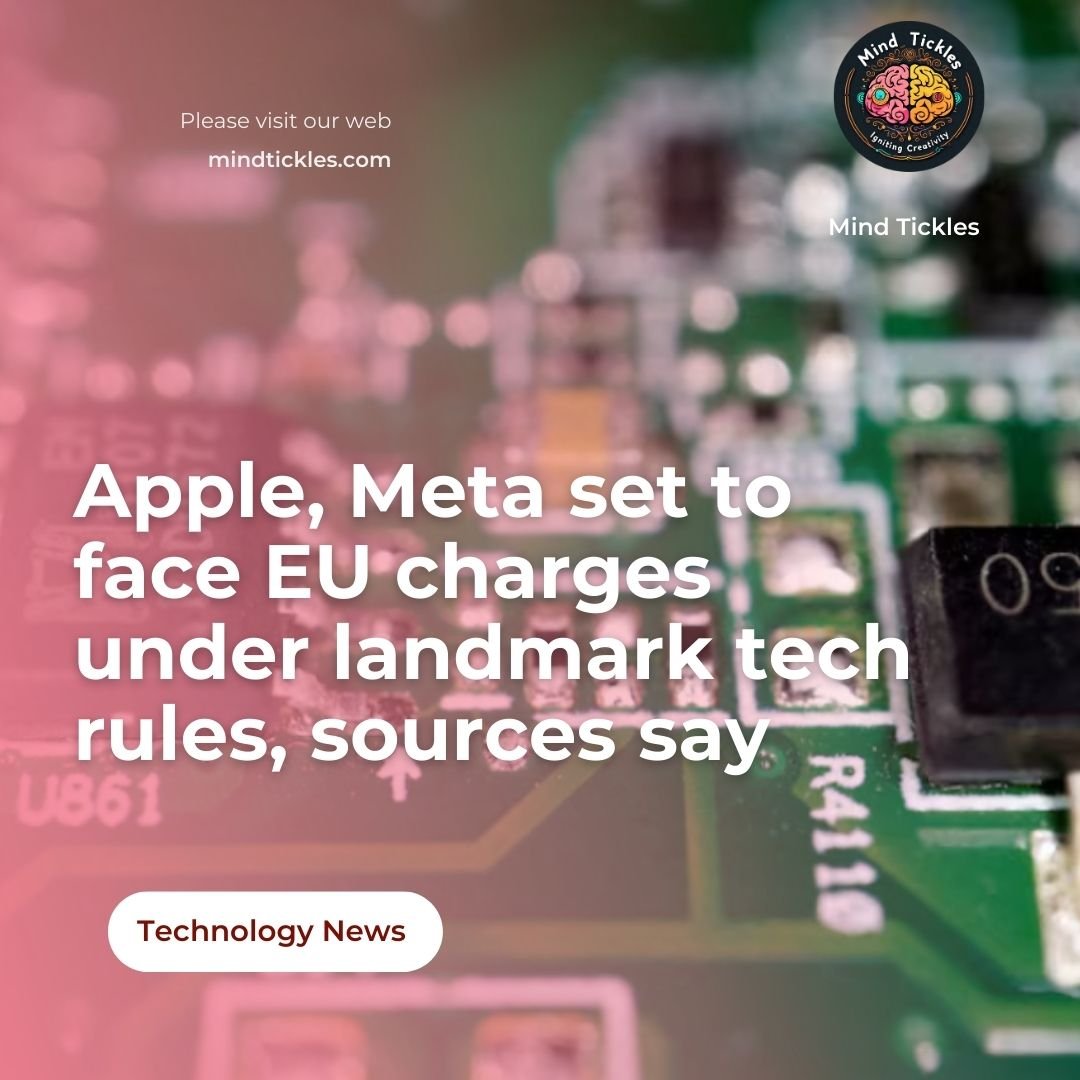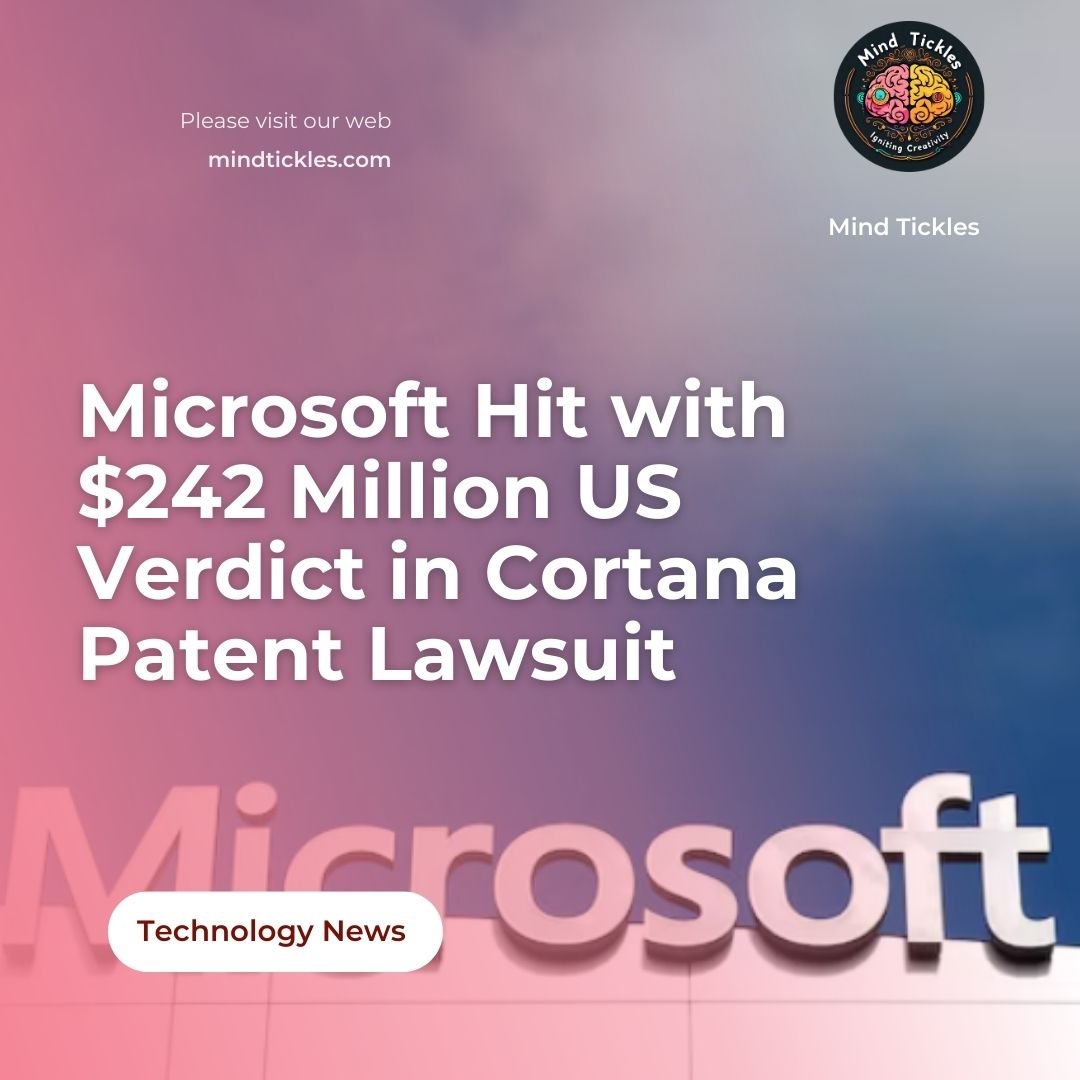Apple, Meta set to face EU charges under landmark tech rules, sources say

Apple Inc and Meta Platforms Inc are set to face charges for violating key landmark EU rules which were introduced in a bid to regulate the firms’ monopolistic activities. This development is a prominent step forward in the generations-long regulatory campaign of the European Commission against Big Tech giants, with Apple and Meta becoming the leaders. In fact, it focuses on going through the specifics of these future charges, how much these companies will be affected, and the general concept of the Digital Markets Act (DMA).
The Digital Markets Act: An Overview
The DMA is a legislative instrument of critical nature in which the actual goal of the regulation of fair competition in the digital market will be outlined. The DMA requires some large digital platform providers, usually described as ‘gatekeepers’, to ensure that they provide access to consumers for competing services. This extends to operation social media applications, Internet browsers and shops for the Apps. The EU enforces these rules to break down monopolistic policies and encourage a leveled a playing field within the digital market.
Apple’s Steering Rules Under Scrutiny
The Steering Rules Issue
The steering rules have been among the areas of concern from the big tech EU’s probe into Apple’s conduct. Some of these rules include perceived as restrictive rule whereby, the app developers are restricted in the way they can inform users of other means of purchasing apps outside the App Store and be charged for it. Opponents have claimed against such practice, envisioning that the lack of competition weakens Apple’s control over the distribution and pricing of applications.
New Fees for the App Developers
Apart from the steering rules, Apple announces new EU charges on app developers adding that it has tightened control over the ecosystem. These fees are considered as another form of obstacle that is put before the developers, which in return puts a check on the innovative products that are being introduced to the consumers. These would probably be two of the charges that EU has laid against Apple and it seems to target those that challenge fair competition.
Meta’s Pay or Consent Model Under Fire
Subscription Model for Ad-Free Experience
Meta Platforms Inc. , the parent company of Facebook and Instagram recently implemented the pay or consent model that many find detrimental. In this model, users have the option to either pay a fixed amount to remove ads on the platform or accept personalized advertisements. Pundits have noted that this approach puts pressure on the users into agreeing to intrusive data treatments, therefore posing several privacy issues.
EU’s Preliminary Findings
According to the initial investigatory report on the DMA violations, the EU is likely to particularly focus on Meta. In the case of the pay or consent model the emphasis will be placed on whether the company is holding the freedom of the user and their choice so that their data can be used in the desired manner. The conclusions of this research may result in great shifts in the way Meta does business in Europe
Timeline and Potential Consequences
Preliminary Findings Before Summer Break
The European Commission is expected to release its recommended actions, which can be compared to antitrust allegations, before august. The sources have it that Apple will be the first to feel the pinch of the charges and this will be sweetened by Meta. This timeline shows how the EU has been working actively to address these compliance matters as you will see below.
Final Decision and Potential Fines
Subsequently, companies are given room to elk up measures of eradicating problems detected in the brief but detailed findings. The final judgment is still pending for the new decision after the EU antitrust charges chief, Margrethe Vestager, steps down next month in October. It is considered unlawful not to conform with RTTOs, and organizations could face fines up to 10% of their total worldwide turnover. For companies of the scale of Apple and Meta, penalties of this kind may be in the billions of dollars.
Responses from Apple and Meta
Apple’s Stance
Apple has relied on its previous comments regarding its legal position and has stated that it believes it is in compliance with the DMA. The company’s view is that it is working constructively with the Commission and that it is still compliant with the regulations. However, charges which are expected to be released in the coming days point to the fact that EU may not be fully sold with the promises of Apple.
Meta’s Position
Meta until the writing of this press release has not been willing to talk about the case that is under investigation. This inaction shows that this is a deliberate move of the company to avoid being drawn in making any comment until the charges are formalized. This approach is practised in matters of sensitivity, particularly with regulatory bodies where any comment could be deemed to precipitate the process.
Implications for the Tech Industry
Broader Impact on Big Tech
The case involving Apple dubbed together with the actions towards Meta is indicative of the campaign against the giants in the technology market and especially targeting the acts of unfair competition in the digital market. These cases will establish key legal frameworks, which may be important for other regulatory developments in other districts. Google’s parent company Alphabet Inc. , which is another US-based company that is already facing investigation, will also be observing this closely.
Encouraging a Competitive Market
It seems that through targeting Apple and Meta, the EU attempts to level the groundwork for smaller firms and disrupt the work of foreign technology giants. This could lead to even more competition, thus fostering more innovation, offering consumers a wider choice and a more healthy digital market. The regulation of the DMA assists in the achievement of these goals as pointed out in its enforcement.
Conclusion
The impending antitrust charges against Apple and Meta, as part of the EU’s ongoing investigation, underscore the Commission’s commitment to regulating monopolistic practices within the digital market. These landmark tech rules, particularly the Digital Markets Act (DMA), aim to ensure fair competition by targeting companies’ restrictive practices, such as Apple’s steering rules and Meta’s pay or consent model on social media platforms.
With direct knowledge of the investigations, EU regulators, led by antitrust chief Margrethe Vestager, have prioritized cases involving major tech companies like Alphabet’s Google. These investigations focus on practices affecting smaller rivals and the overall competitiveness of online services, including internet browsers like Apple’s Safari and various app stores.
In a March statement, Vestager highlighted the importance of these cases in promoting a level playing field. As the EU prepares to release its preliminary findings before the summer break, both Apple and Meta face potential fines of up to 10% of their global annual turnover if found non-compliant. The final decision will significantly impact how these companies operate, particularly concerning new fees imposed on developers and other practices scrutinized in the second investigation.
The EU’s rigorous approach serves as a warning to other major companies and reflects the Commission’s dedication to protecting consumer rights and fostering innovation in the digital age.

If you want to read more information just visit –> Mind Tickles





